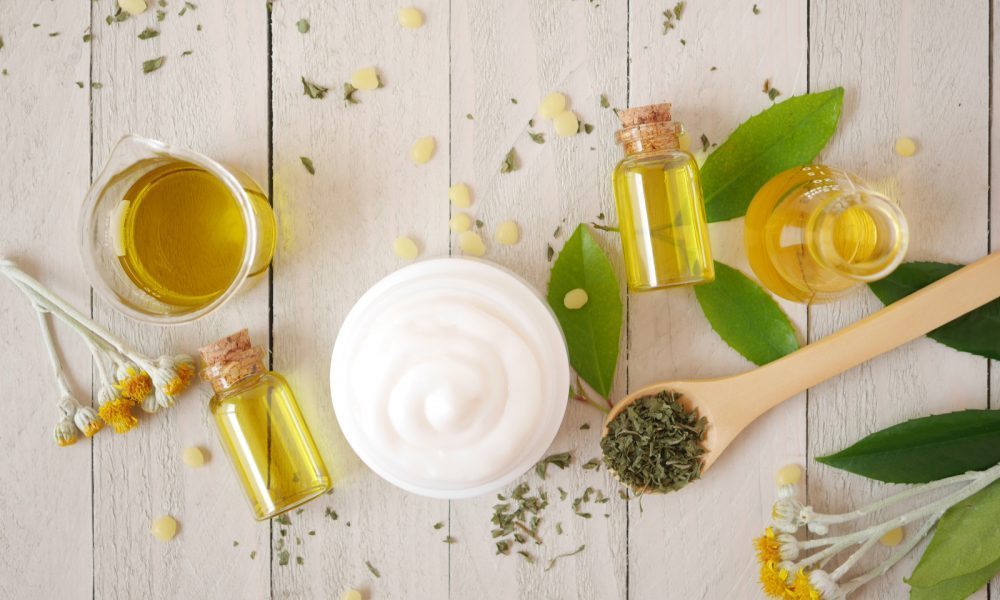Natural Vs Organic, the great debate?


Hey everyone! Have you ever wondered to what degree your skincare products are safe? Or if they are natural and/or organic?
The phrase, "If you can't pronounce it, don't use it," has been around the skincare industry for some time now and does hold a lot of wisdom. Can you imagine putting ingredients with unpronounceable names like methylparaben, methylisothiazolinone, diazolidinyl urea, imidazolidinyl urea, Polytetrafluoroethylene (PTFE) in your cooking? The sheer unimaginable impossibility! But that is exactly what happens when we use products with ingredients like the above and a lot more not listed in this blog post on our skin.

Do you know that your skin absorbs up to 60% of whatever you put on it? Yes, it does! Armed with this knowledge, we really should try as much as possible to use pure and safe products that are free of synthetic chemicals or toxic ingredients. Nowadays, there is a growing need for natural and organic skincare products, with society becoming more and more health-conscious.
The question however is, is there any difference between natural and organic skincare? Oh, yes, there is!
The significant difference between natural and organic skincare products is mainly in the elements used to make them. When we use the word 'natural', we refer to ingredients gotten from plants with little to no processing, while organic refers to ingredients/elements obtained from non-genetically-modified plants grown without artificial pesticides, synthetic fertilizers, or other toxic matter.
Now that you know the main distinction between natural versus organic skincare ingredients, let's take a closer look at this concept below. We will talk about the fundamental differences between natural and organic products, why they are better than synthetic or non-organic products, which products are generally better for your skin, and other interesting facts you should know. So, if you're set to learn more about natural versus organic skincare, let's get to it!
The terms 'natural' and 'organic' are often used together or even interchangeably, even though they are not the same. Natural can be organic, but not all organic is natural. And some compounds that are technically 'natural' are definitely harmful for the skin- petroleum, I'm looking at you!
For easy comprehension, you should note the four possible organic classifications by the agency of the USDA:
- "100 percent organic." A product with this stamp must contain only organically produced ingredients, except for water and salt.
- "Organic." For a product to have this label, at least 95 percent of its ingredients must be organically produced except for water and salt.
- "Made with organic ingredients." This label is placed on products which have between 70 to 95 percent organically grown ingredients.
- "Organic [ingredient]." Products manufactured with less than 70 percent organically produced ingredients may only identify the specific USDA-certified components as being organically grown.
Hopefully, this makes things a little clearer?

Are Organic Skincare Products Better?
Natural products are healthier overall for the skin than any product gotten synthetically. However, organic products are the best! Plants grown on organic farms have higher levels of vitamins, minerals, and antioxidants than non-organic plants because they are grown without herbicides, pesticides, or fertilizers; they are also free of contaminants that are harmful to the skin and body. Organic skincare products are also non-antigenic, cruelty-free, and safe for the environment.
If a skincare product has the 'all-natural' reference on the label, it suggests that nothing artificial was used to make it. Therefore, it is free of anything synthetic, including perfumes and dyes. Other chemicals that are not natural and are often found in beauty/skincare products include parabens, sodium sulfate, propylene glycol and mineral oil. Petroleum jelly (though naturally occuring) and mineral oil are byproducts of petroleum refinement and both are considered petrochemicals. If you see any one of these ingredients listed on any skincare label, it is not all-natural, and therefore, could be potentially harmful.
For an enterprise to label a skincare product, "natural" may not have much significance because the word "natural" is an unregulated term as the FDA and USDA do not have standards to regulate it. Since there is no standardization for the word 'natural' in skincare, any skincare product merchant can use it on their label with abandon. So how would you know if a product is natural and/or organic or synthetic? You would know this by reading the label. I cannot emphasize this enough! If the natural components are located near the ingredients list's bottom, then the product is hardly natural!
What are the best skincare products?
The best skincare products are usually organic and natural in composition. They contain more vitamins, minerals, and antioxidants, which are very important for skin health, and they are also less prone to cause harm or irritate sensitive skin. They are devoid of animal testing, 100% botanical-based, and safe for the environment. Best of all are the natural organic skincare products packed with all the goodies nature provides for complete skincare.
Why are natural skincare products better?
The natural constituents in natural and organic skincare products are by far better than most traditional products plus most of these synthetic products can be expensive while providing very little nourishment to the skin. For instance, natural ingredients such as aloe vera, shea butter, kokum butter, almond oil, olive oil, raspberry extract, rosemary extract, and jojoba oil can be just as effective as some chemicals in protecting against sunburn and UV damage.
Natural skincare ingredients, including kokum butter, murumuru butter, tea tree oil, avocado oil, aloe vera, manuka honey and tamanu oil can also successfully treat acne. They are gentler on the skin and rarely irritate, especially if they are pure and unrefined or refined minimally using steam distillation or cold press methods. This is good news for those with sensitive skin as well as individuals with chronic skin conditions.

In summary, natural and organic skincare products are usually the best to use on the skin for the various reasons listed above. There really is no debate between the two terms - 'natural' vs 'organic' in my opinion.
However, not to belabor the point, we’ll say it one last time for those at the back: Read that ingredient list!

Comments on this post (1)
Muchas gracias. ?Como puedo iniciar sesion?
— ymgzdaewcm